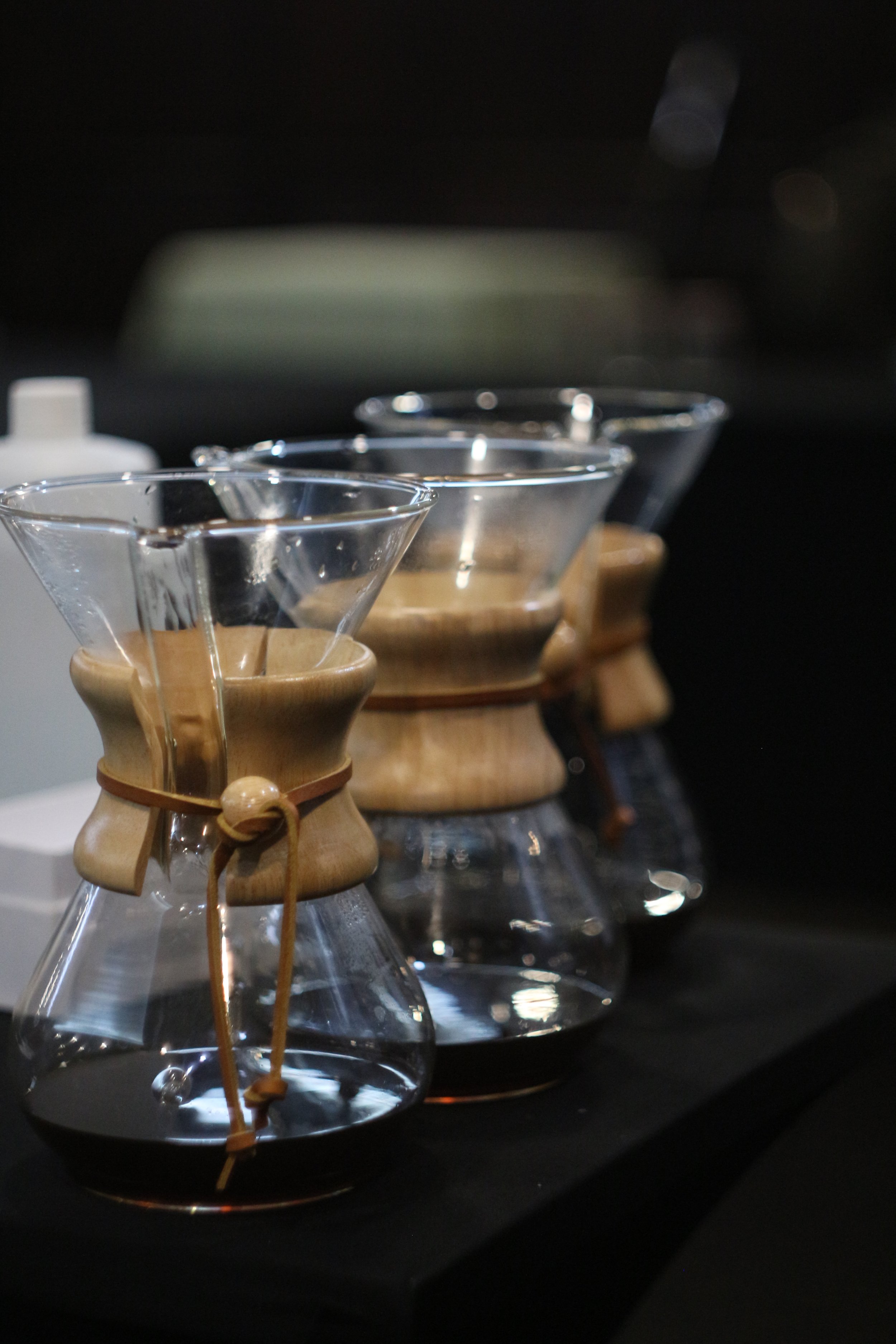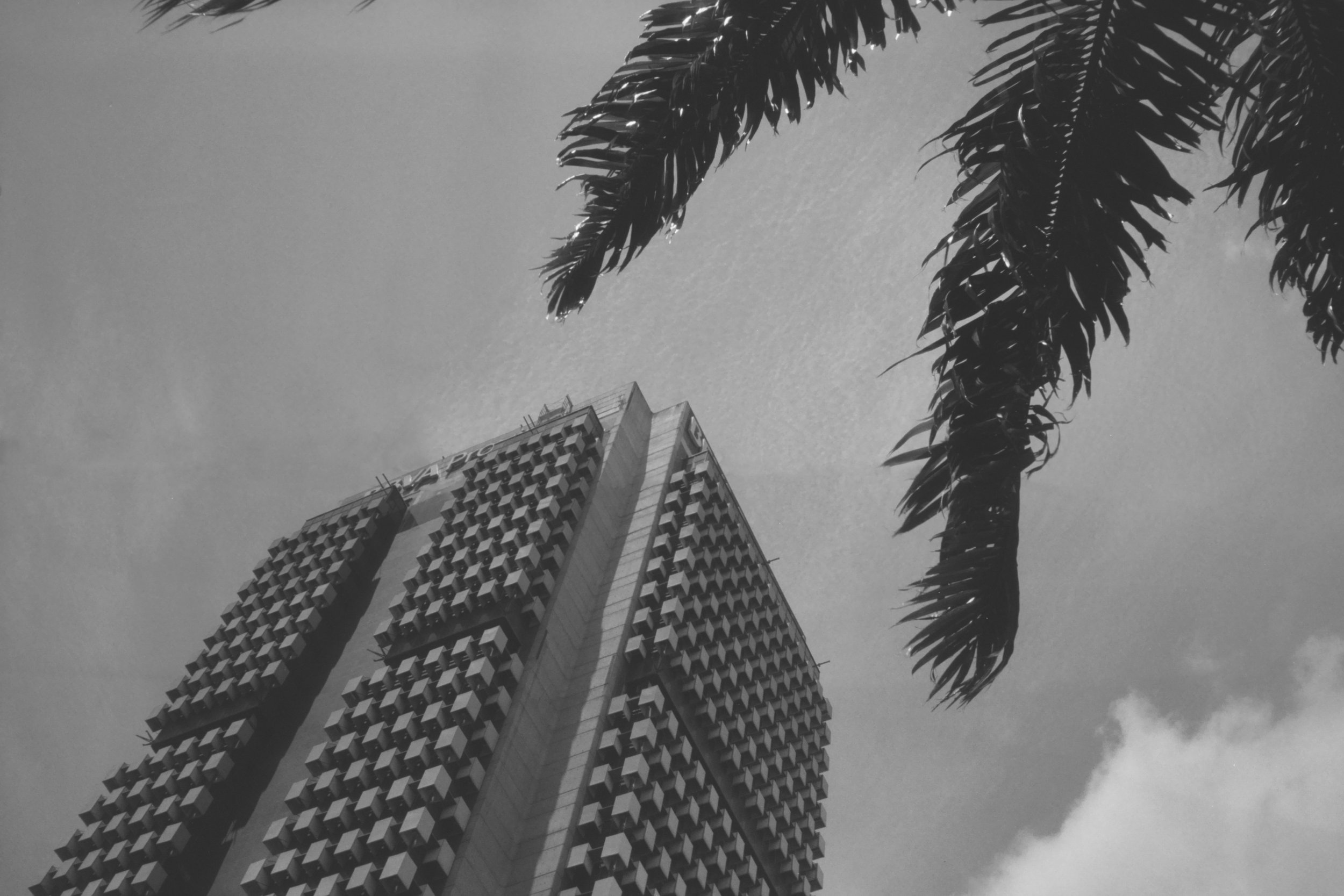
It's a wonderful feeling to be welcomed by family in a country you left ten years ago. This is the case for Juan and me, who moved to France to study after having spent all our schooling in Venezuela. Another point in common is that our respective families left the country in 2015 for Colombia in the case of Juan, and for France in the case of my family. Here we are, back in the country, without our parents, just a few family members remaining in Juan's case. This is what allowed us to rediscover the feeling of coming home, although deep down our home is a concept we know to be more complex. Juan's uncle picking us up at the airport, his family welcoming us with a dinner of everything we like and miss about Venezuelan gastronomy. It's like being at home, and that's just what we needed to incubate our ideas and start our journey towards what we came here to do.
chapter 11
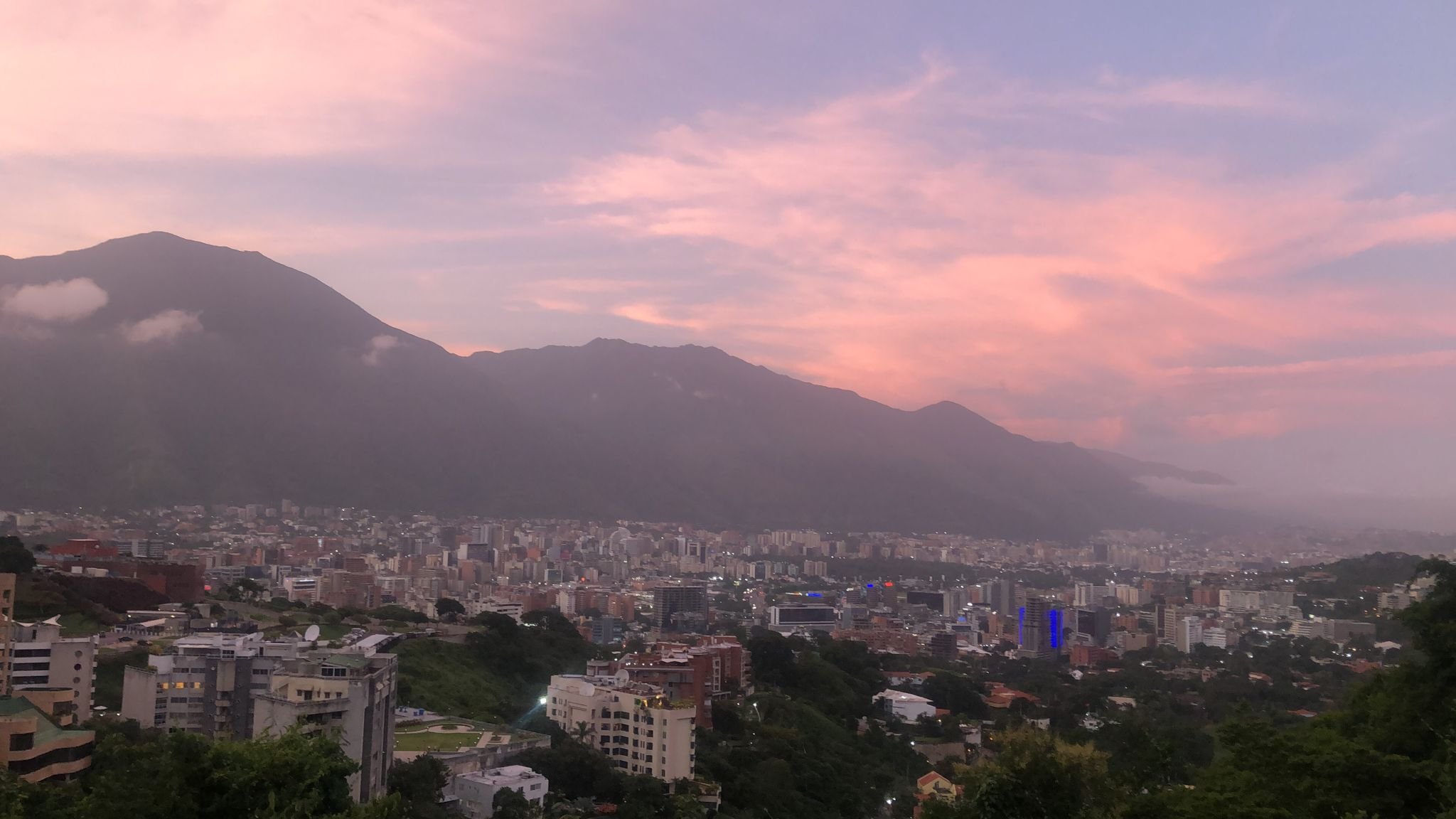
We had to make this trip. It was vital to attend the second Venezuelan specialty coffee meeting scheduled for July. The excitement generated by the first event and, above all, the initiative to promote specialty coffee in Venezuela had a lot going for it. For us, the event represented an opportunity to learn more about the current context of the sector. Long before specialty coffee, Venezuela was a producer country. But oil was more profitable. So production suddenly plummeted. Families had to change their carriers. Farms were abandoned. Coffee was completely forgotten. Not totally, in Venezuela we consume a lot of coffee, even from a very early age, sometimes. It's a cultural thing. But while the equatorial country has everything it needs to appear on the map of coffee-producing countries, it doesn't appear at all, and is invisible on the international market. The advent of this sector's development through the event we came to attend shows that there is new hope for coffee producers. Even better! Virtuous methods of production, geared towards a product of recognized quality, are popularized by specialty coffee and even as far as Venezuela. So we knew exactly what we had to do over the next three months. Learn as much as we could, get to the root of it all. Put on boots. Put on a hat and discover the producers who are betting on the growth of this sector.
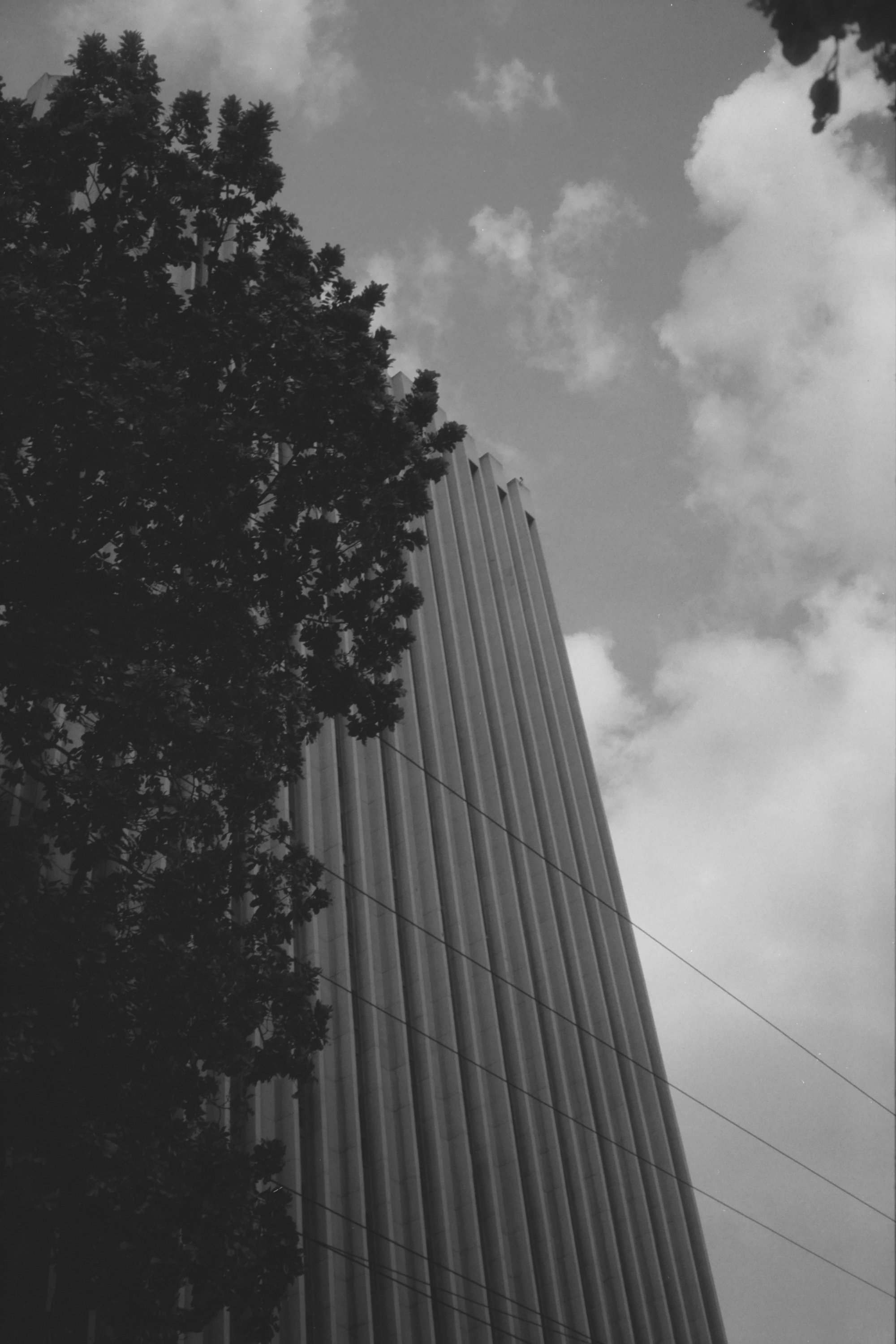
Over a year ago, a long-standing friend with whom I've kept in touch through Instagram advised me to visit a coffee farm near Tovar, in Mérida. I did just that with Juan, and it's still an unforgettable experience for us today, and a source of immense hope for our project. I hadn't yet had the opportunity to present Aarom to Juan, so we'd have to wait perhaps ten years for this meeting to take place. We finally managed to meet up, in Caracas where he now lives. And even though I dreaded the time that has gone by, the meeting happened quite naturally. Aarom is originally from Boconó, where I met him, a coffee-growing region. He was keen to introduce me to his childhood friend, Joel Perez, who came from a family of coffee growers and now runs his own roasting and coffee shop, "Cospe Café", the place to be for specialty coffee in the capital, where he promotes coffee from his region. Joel was the driving force behind obtaining the protected geographical indication "café de Boconó", and works with numerous producers to help them produce coffee in the best possible conditions, pooling resources and knowledge while striving to achieve the best possible quality. During this exchange, Juan and I were completely immersed in an experience that only a producer country could provide. We were in touch with the origins, the lands that are home to the much-loved coffee, while enjoying our coffee at the counter.
Joel represents this new generation of Venezuelan coffee growers.
His connection with the outside world, his knowledge of coffee trends and those of consumers, enabled him to reconnect with his family's apprenticeship, the coffee sector in which he grew up. By thinking big, he has succeeded in bringing his region's coffee to the capital's coffee scene and, who knows, to the international coffee scene with the award of this PGI. For us, this was a moment of realization. The producer, the first link in the chain, and the roaster are embodied by the same person. The short-circuit is not a widespread concept, and even less so in Venezuela, but in this case we’re not so far away from that. Aarom opened this window to Venezuelan reality shortly after our arrival, and that's what we needed to believe in our path, and we wanted to know so much more. Our to-do list quickly filled up with people we wanted to get in touch with so we could repeat the experience we'd had with Aarom and Joel.
On that list was Adnoldo and his cousin Edwin, both producers of specialty coffee in Tovar at the farm we visited over a year ago. Adnoldo had been very attentive to us during the two days we had spent on the farm. But above all, he opened up to us about the whole post-harvest coffee processing. That's what they're most passionate about, experimenting with coffee fermentation to bring out the inherent attributes of the yellow Catuai they grow on their family farm. As I said, it was a life-changing experience, and this farm will surely remain anchored in our memories forever, being the first farm we visited in Venezuela and Adnoldo, the person who greeted us at El Vigia airport after six years of absence. Meeting Edwin, who couldn't be there when we arrived, would complete the picture and give us another opportunity to visit this farm!
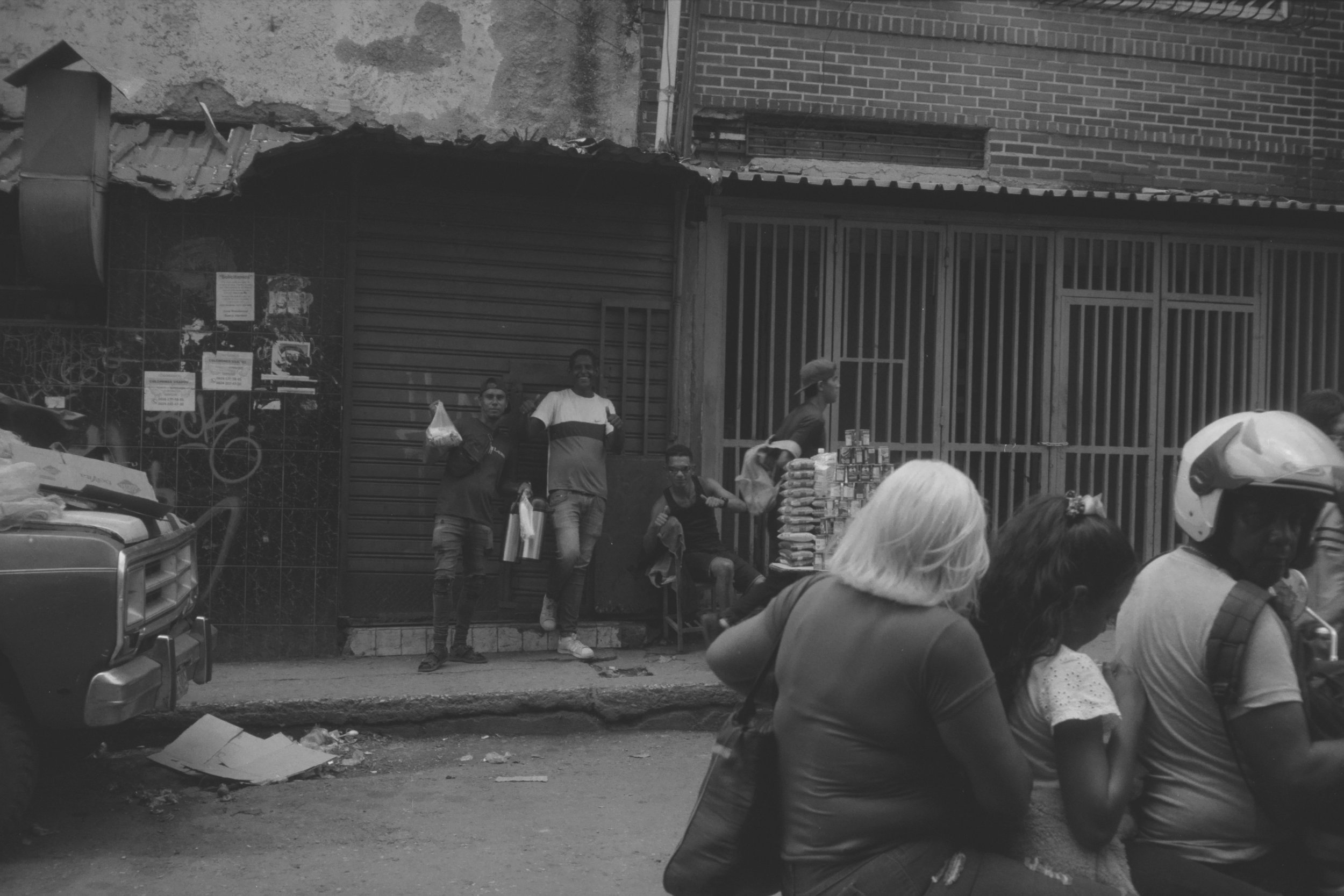
Juan has a family home in Caracas, which has been abandoned for some years now. With the arrival of his mother, who had come to join us in Venezuela, the project of rehabilitating this house was set in motion. It was an ambitious project, since even getting the keys from the person who kept them proved to be no simple matter. But opening a house that had been the scene of family reunions and important moments in the evolution of each family member was a privileged moment. The garden may have resembled a jungle, and the house had a certain odor that one can easily imagine after so much time unoccupied, but for Juan and me it was the beginning of our life together in Caracas. With the freedom and independence that this implies, which would allow us to invest ourselves fully in our project. It's certainly a common episode in the lives of exiled Venezuelans who return momentarily or definitively to their country. It's a country that's showing itself to be in better health than it was at the time of the serious crises that took place. It's on this wave of hope that we want to build our project. Betting on Venezuelan coffee is our way of keeping this wave alive. Working to make Venezuela stand out internationally for its richness is our way of giving back to this country that has given us so much and sheltered us during the most formative years of our lives.
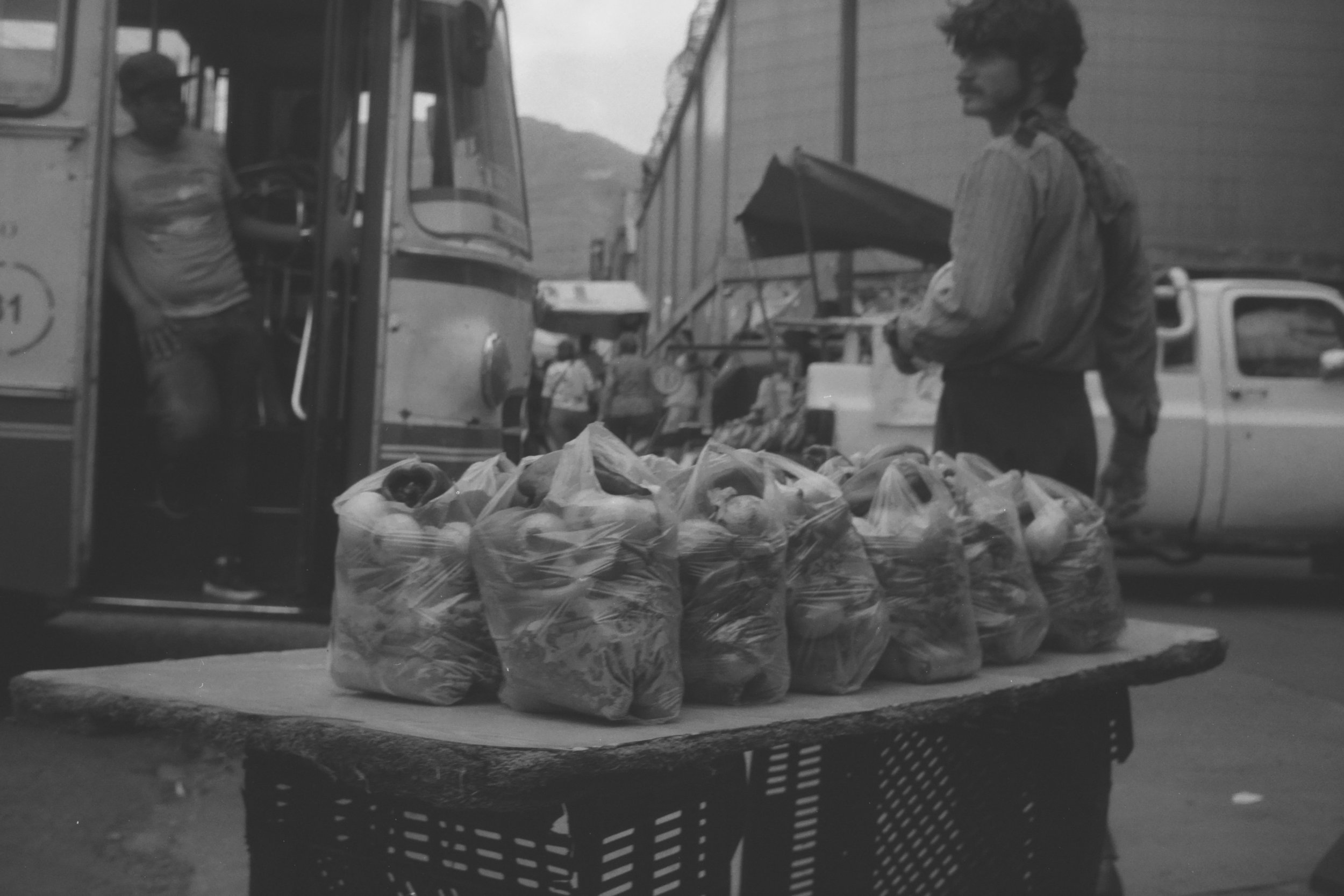
In addition to the reality of the producers and their activities, we were also interested in another sector. That of the baristas. There are many baristas in Venezuela, as there are everywhere. But Venezuela's specialty coffee baristas are passionate about their craft, and keen to compete. So the Brewing Championship was an event we wanted to attend. In Toulouse, I had listened to an interview posted live on Instagram with the event's organizer, Fausto Russo. It caught my attention because of the message it conveyed: visit the farms, see the work being done in the field. This advice addressed to Venezuelan baristas resonated with me; with Juan, that's exactly what we were going to do! He replied instantly and we exchanged phone numbers, open to seeing each other. We arranged to meet at a specialty coffee shop in Los Palos Grandes, which we really like because it offers coffees from different regions of Venezuela. Quiero1café offers a journey through the country, with a wide selection of coffees prepared by experienced baristas who are keen to ensure that their customers taste the very best. The interview was efficient and reassuring. Fausto gave us good advice on our travel plans and encouraged us to attend the brewing competition. A number of top baristas would be attending the competition, and it would be an opportunity to taste some of the very best coffees prepared by the very best. We were delighted with the invitation.
Saturday 13 May - Lido Hotel - Daylight
Juan and I arrived at the first day of the event, which would qualify the baristas who would go on to compete in the final phase for the top prize. Many people from the coffee world were also in attendance, and being there gave us the opportunity to network and talk about our project. Talking about our desire to get to know our country's coffee, to learn more about the specific nature of the sector and, above all, to meet the producers. We were hoping to find some answers and find people who could open the doors of farms for us, or at least get us some addresses... and it was much more than that, what awaited us. Attending the baristas' presentations is an emotional moment every time. They put all their energy and emotion into it. A strong bond is created through the barista's closeness to the coffee he or she prepares. After each show, there was only one thing we wanted: to taste the coffee! Each coffee we had the chance to taste was a little drop of what we wanted to discover. We were right where we needed to be. When it was Francesco Guerrieri's turn, we had the real feeling of being at a competition in Venezuela.

El guayoyo de Francesco, algo tan simple pero a la vez tan grande.
Francesco catches his breath and asks for the timer to be started. Then begins an epic piece, La Fuga con pajarillo by Aldemaro Romero, performed by the Camerata Criolla. The sound evokes Venezuelan folklore and musical culture. The greatest of classics, performed with the greatest virtuosity and majesty, will be the background music for Francesco's presentation. In front of the jury, the most common tool in Venezuelan homes, used to make morning coffee. The manga guayoyera. A conical mesh made of very fine fabric, with a wire at its base so that it can be suspended by a handle above the cup in which the coffee filtered by this mesh will be served. El guayoyo. If there were a definition, it would be a common name for the long, hot, black coffee most popular for Venezuelans. It's the simplest, most common way of asking for coffee. Francesco was stepping out of the orthodox, widespread methods of the growing 4th wave culture of specialty coffee, to give pride of place to the popular culture of the country we were in. Our emotions were running high and our attention completely riveted on his speech. « Me llamo Francesco Guerrieri. Aunque vivo, estudio y trabajo en Valencia, soy originario de Turén, el primer granero de Venezuela ». So much for his presentation. As for the coffee he'll be preparing, we learned at the same time as the jury that it's a coffee from the Santa Fe Coffee Estate farm produced by Juan Carlos Mujíca, in the state of Lara, four hours from Caracas. At that time, we didn't know that we'd be getting to know this farm a few weeks later. The batch Francesco uses is a natural red bourbon. With a 112-hour fermentation of freshly harvested and washed cherries. He talks about the importance of Juan Carlos' parents' legacy of hard work in coffee production, and the importance of coffee in his life at the time of his parents' death. We were about to hear more from him... But Francesco's words were enough to move us. Coffee creates bonds and makes people talk about themselves. We would have liked the presentation to have lasted longer, but that would have cost him disqualification. He kept to the timetable, within ten minutes, and we were left only with the coffee that had not been served to the members of the jury as a consolation. The coffee was excellent, with no surprises.

On the second day, Víctor Montilla's coffee, the fourth generation of his coffee-growing family in Boconó, would allow to choose the winner. Victor Montilla attended the competition and listened attentively to the presentations of each finalist, not forgetting to taste his own coffee prepared using the methods of each brewista. Victor Montilla also represents this new generation of coffee growers. He is one of those who are taking up the family torch, extinguished by a lack of hope in the industry. Although he already supplies a number of roasters, this year is his first harvest of which he is truly proud. Here too, Juan and I were impressed, happy and moved to see the producer in the front row. At the initiative of his project, seeking to make himself known and talked about. That's the great advantage of coming to visit a producer's country: you get up close and personal. And to see that producers can also get up close and personal. We'll experience many moments of accomplishment throughout our trip, without really expecting or looking for them. I really think these are the most inspiring moments. In addition to the project of putting Venezuela on the producers' map and raising awareness of the country through its products, we're also looking to enhance the value of the producer throughout the chain. Bringing together the two ends of the chain, which are too far apart. It's one thing for the grower to be able to taste a coffee roasted and prepared by an expert. That the consumer knows the face of the producer, his name and the region in which he grows, is also an objective. One of the values we're trying to convey, and one that's close to our hearts, is to know where what we're consuming comes from. This allows us to value the work that goes into it, and is a step towards fair remuneration for the producer. Although this is not often the case, directing the consumer's gaze towards this reality is already a start. And things are happening step by step. We'd like to contribute to raising awareness, and our duty during this trip is to open our eyes to the raw reality of this still invisible country, in terms of production quantity, export capacity and specialty coffee cultivation. To witness the work of Adnoldo, Edwin, Joel, Juan Carlos and Víctor is to witness the commitment these producers have to their country and to the culture of coffee (with a capital C). Producing coffee is hard work, and producing it in Venezuela is a feat worthy of admiration. Because there's still so much to build. But it's certainly exciting to witness the debut.
Each finalist made a fine presentation. Our favorite, Francesco Guerrieri, took third place. His prize includes a V60, but I still don't understand what he'll be able to do with it. The manga guayoyera is what he's been most successful with!
